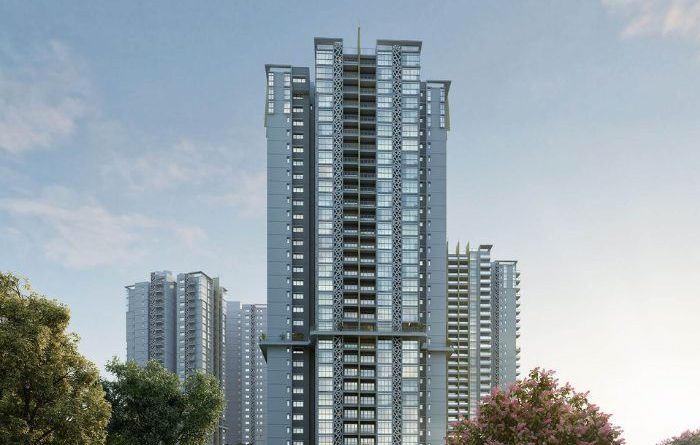The Future of Real Estate: Innovations and Technologies to Watch
The real estate industry is undergoing a transformative shift in an era defined by rapid technological advancement and ever-evolving societal needs. Innovative technologies are reshaping how we buy, sell, and interact with properties, from smart homes to virtual reality tours. As we venture into the future, several key innovations are poised to redefine the real estate landscape.
Blockchain Technology: One of the most disruptive forces in real estate, blockchain technology promises increased transparency, efficiency, and security in transactions. By creating tamper-proof records of property ownership and streamlining the transfer process, blockchain can potentially eliminate the need for intermediaries, such as lawyers and brokers, reducing costs and minimizing the risk of fraud.
Blockchain-powered smart contracts enable the automated execution of agreements, ensuring that terms are met before transactions are finalized. This accelerates the closing process and enhances trust between buyers and sellers. Additionally, fractional ownership through blockchain allows investors to own fractions of high-value properties, democratizing access to real estate investments.
Also Read: How to Find the Right Realtor for Your Home Search?
Virtual Reality (VR) and Augmented Reality (AR): The emergence of VR and AR technology has revolutionized how properties are marketed and showcased. Virtual tours enable prospective buyers to explore properties from the comfort of their homes, providing an immersive experience that traditional photographs and videos cannot replicate.
AR applications overlay digital information onto real-world environments, allowing users to visualise potential renovations or furniture placements within a space. This interactive approach enhances buyer engagement and facilitates informed decision-making, ultimately expediting sales.
Furthermore, developers and architects utilise VR technology to design and visualise projects before construction begins, reducing costs and minimising errors in the planning phase. As VR and AR continue to evolve, their integration into real estate workflows will become increasingly prevalent, enhancing the customer experience and driving greater efficiency.
Also Read: Winter Home Decor: Cosy and Stylish Ideas for the Cold Season
Artificial Intelligence (AI) and Big Data: The vast amount of data generated within the real estate industry presents both challenges and opportunities. AI algorithms analyse market trends, consumer behaviour, and demographic data to provide valuable insights into property valuation, pricing strategies, and investment opportunities.
AI-powered chatbots and virtual assistants streamline customer interactions, addressing inquiries and scheduling appointments in real time. These automated solutions improve responsiveness and customer satisfaction, enabling agents to focus on high-value tasks while enhancing the overall efficiency of operations.
Moreover, predictive analytics leverage historical data to forecast market trends and identify emerging opportunities, empowering investors and developers to make informed decisions. Real estate professionals can gain a competitive edge in an increasingly dynamic marketplace by harnessing AI and big data.
Also Read: The Responsibility of Developers in Ensuring Residential Security
Sustainable Design and Green Technologies: With growing awareness of environmental sustainability, there is a rising demand for eco-friendly and energy-efficient properties. Green technologies such as solar panels, smart thermostats, and energy-efficient appliances reduce carbon emissions and lower utility costs for homeowners.
Furthermore, sustainable design principles prioritise resource conservation and minimise environmental impact throughout construction. From passive solar design to green building materials, developers embrace innovative solutions that promote sustainability without compromising comfort or aesthetics.
Incorporating sustainability into real estate projects aligns with societal values and enhances long-term property value and marketability. As environmental consciousness shapes consumer preferences, sustainable design, and green technologies will become integral components of the future real estate landscape.
Remote Work and Flexible Spaces: The rise of remote work and flexible employment arrangements has prompted a reevaluation of traditional office spaces and commercial properties. As businesses adapt to remote work models, there is a growing demand for coworking spaces, flexible leases, and amenities that cater to remote workers’ needs.
Moreover, the concept of remote work has fueled interest in residential properties located in suburban and rural areas, offering a reprieve from urban congestion and high living costs. As remote work becomes more mainstream, real estate developers such as Shapoorji Pallonji and investors are reimagining the concept of live-work-play communities, integrating residential, commercial, and recreational spaces into cohesive environments that support modern lifestyles. Some of their landmark projects are Sensorium Hinjewadi and Joyville Virar. Each project reflects architectural brilliance.
In conclusion, the future of real estate is characterised by innovation, adaptation, and technological advancement. From blockchain-enabled transactions to virtual reality tours, the industry is undergoing a profound transformation driven by evolving consumer preferences and emerging technologies. By embracing innovation and harnessing the power of technology, real estate professionals can unlock new opportunities, enhance customer experiences, and shape the cities of tomorrow. As we journey into the future, the possibilities are limitless, and the only constant is change.

